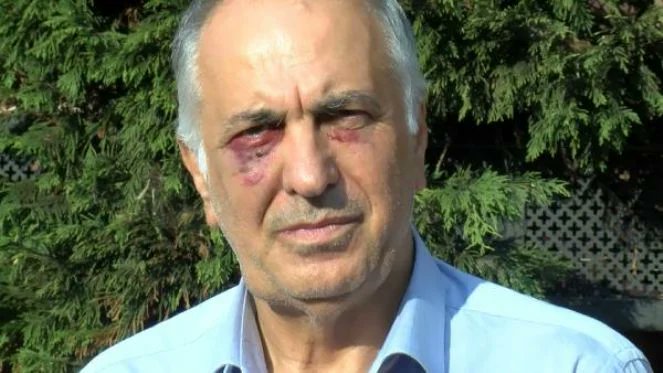Selami Sarıtaş, an Alevi leader in İstanbul’s Kartal district, was attacked and beaten in front of his house on Friday by two unknown assailants in an apparent hate crime, the Stockholm Center for Freedom reported, citing the Duvar news website.
Sarıtaş said the assailants approached him on a motorcycle and stopped him. They started punching and insulting him as he tried to escape in his car. “I kept honking the horn and tried to defend myself,” he said.
The attack on Sarıtaş came a week after five Alevi houses of worship (cemevis) were vandalized in the Turkish capital of Ankara. All the attacks took place during the Alevi holy month of Muharram, during which the community commemorates the killing of Imam Hussein, the grandson of the Prophet Muhammad.
“During our days of mourning, such incidents are not pleasant,” said Sarıtaş. “However, they can’t damage our unity as a community.”
Ali Babacan, leader of the Democracy and Progress (DEVA) Party, condemned the attack on Sarıtaş. “I see attacks on the Alevi community have increased. I wish Kartal cemevi leader Selami Sarıtaş a speedy recovery. These attacks will not achieve their goal. We will live equally and freely in this country,” he said on Twitter.
Alevi toplumuna dönük saldırıların arttığını görüyorum.
Dün hedef olan Kartal Cemevi Başkanı Selami Sarıtaş’a geçmiş olsun diliyorum.
Bu saldırılar amacına ulaşamayacak. Eşit olacağız ve bu topraklarda özgürce bir arada yaşayacağız.
— Ali Babacan (@alibabacan) August 6, 2022
A lawyer representing the cemevis said they believed the attacks were “organized and planned beforehand.”
The Türkmen Alevi Bektaşi Foundation’s headquarters in Çankaya was targeted around 1:30 p.m. on July 30, and the Şah-ı Merdan cultural association in Mamak around 2:30 p.m., while the Ana Fatma Cemevi and the Gökçebel Village Association – both also in Mamak – were attacked simultaneously around 3:40 p.m.
A woman sustained injuries from a knife at the Türkmen Alevi Bektaşi Foundation, while plastic chairs were thrown at members of the Şah-ı Merdan cultural association.
Although the police detained a suspect identified only by the initials A.O.K., accusing him of all the attacks in Ankara, others believe the incidents weren’t perpetrated by the same person.
Opposition deputies accused the authorities of negligence and said a thorough investigation had not been carried out.
“Nearly 10 hours elapsed between the first attack and the time he [the attacker] was caught. There is negligence here, but it’s the Interior Ministry that should investigate it,” said Republican People’s Party (CHP) said Ankara deputy Gamze Taşcıer, who visited the Alevi associations and was briefed on the events.
According to a 2020 report published by the Freedom of Belief Initiative, which listed data obtained from work monitoring religion or belief-based hate crimes that were committed in Turkey that year, Alevis were targeted in more than half of them.
Alevis, who are estimated to account for 16.5 percent of Turkey’s population of 83 million, are the second-largest Islamic sect in Turkey, with Sunni Hanafi Islam the largest.
There are long-standing tensions between the Alevi and Sunni communities in Turkey. During the Turkish republican era, hundreds of Alevis were killed in pogroms, which many now believe were masterminded by groups inside the state, in the cities of Çorum, Yozgat and Kahramanmaraş in the 1970s.


